Social reward
Recent articles
Oxytocin prompts prairie voles to oust outsiders, fortifying their friendships
The “love hormone” drives the neurobiology behind platonic bonds in animals usually studied for their romantic attachments.
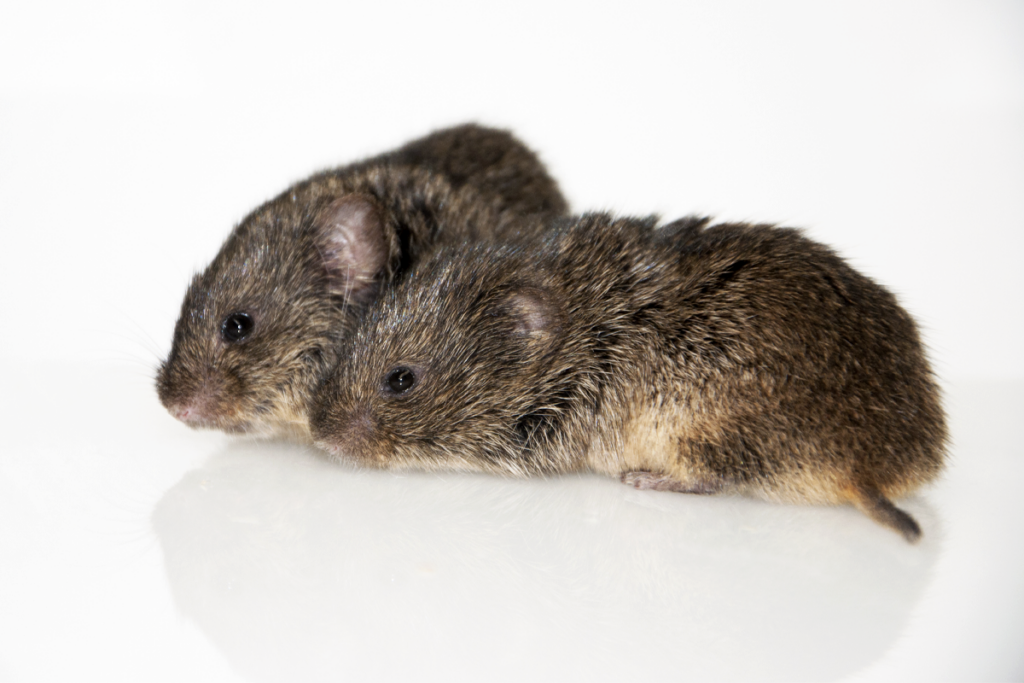
Oxytocin prompts prairie voles to oust outsiders, fortifying their friendships
The “love hormone” drives the neurobiology behind platonic bonds in animals usually studied for their romantic attachments.
New test taps nose pokes as a proxy for social motivation in mice
Over one hour, a particularly motivated mouse poked its nose 350 times into a hole in the test chamber in the hopes of meeting a playmate.
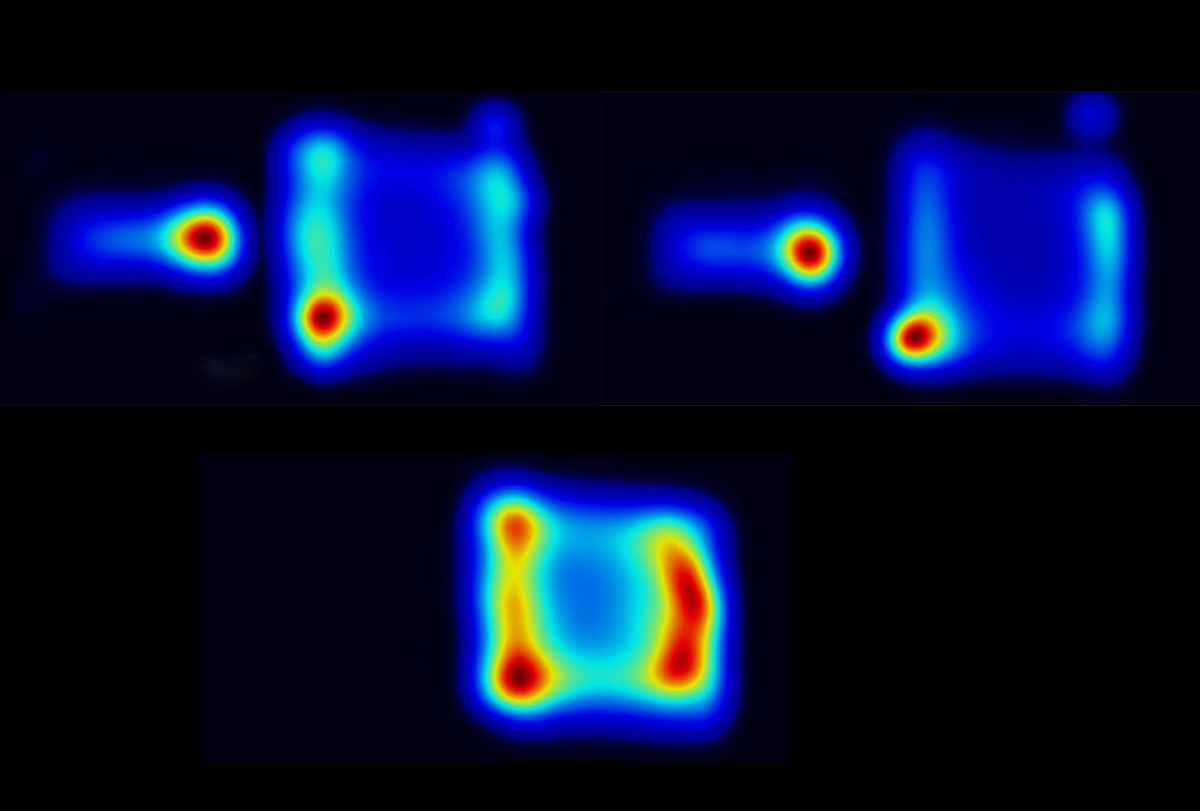
New test taps nose pokes as a proxy for social motivation in mice
Over one hour, a particularly motivated mouse poked its nose 350 times into a hole in the test chamber in the hopes of meeting a playmate.
Psychedelics give mice second chance to learn social rewards
The drugs may reopen a critical window during development in which the brain can more easily adjust its connections.
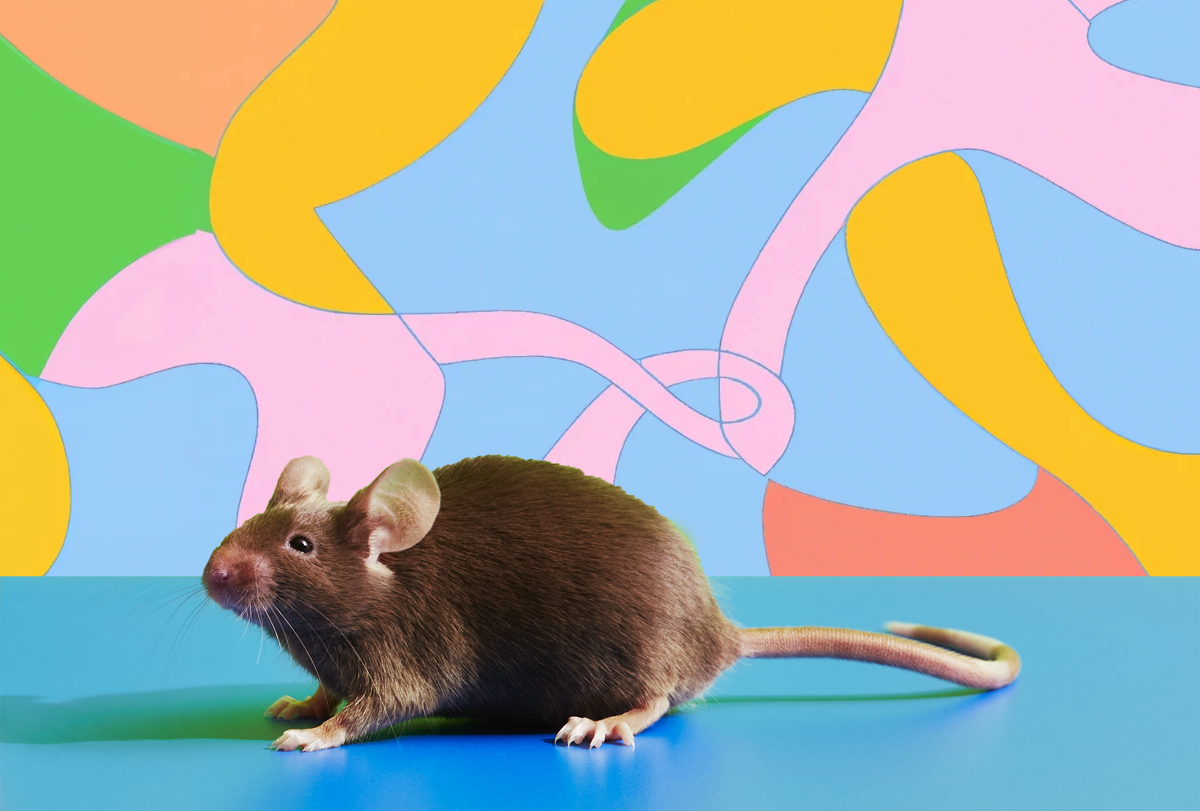
Psychedelics give mice second chance to learn social rewards
The drugs may reopen a critical window during development in which the brain can more easily adjust its connections.
Getting eight arms around autism
Octopuses can solve some of the same problems as people but do so in unusual ways.
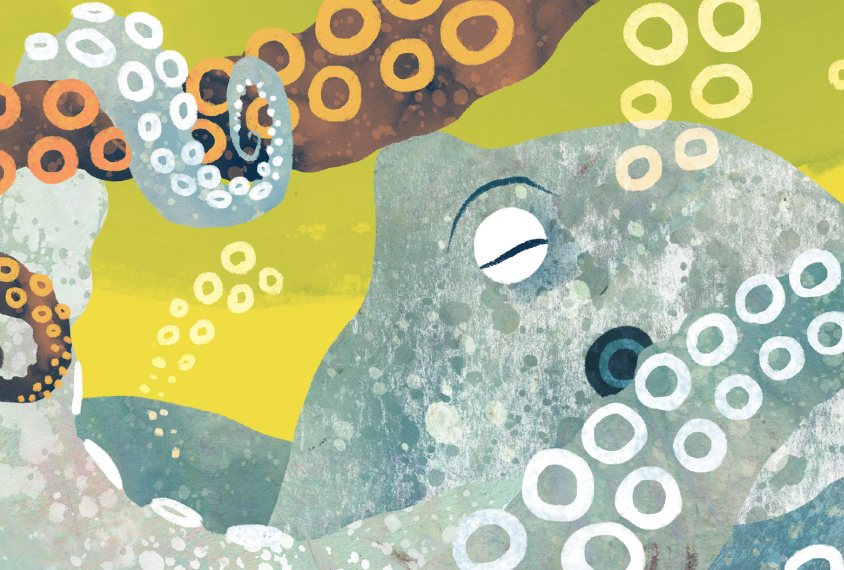
Getting eight arms around autism
Octopuses can solve some of the same problems as people but do so in unusual ways.
Drugs boost serotonin, socialization in multiple autism mouse models
The finding that MDMA and an experimental serotonin agonist increase sociability across six different model mice suggests that disparate autism-linked mutations converge on the same underlying pathways.
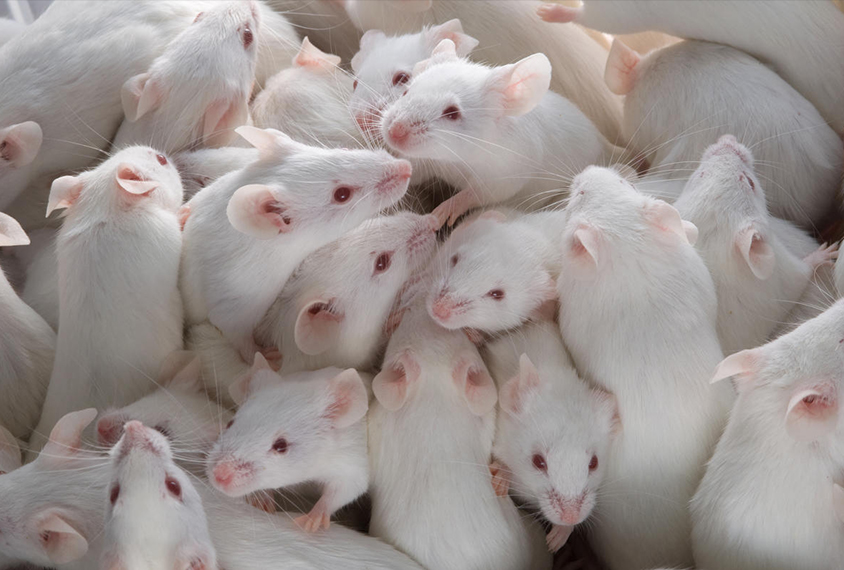
Drugs boost serotonin, socialization in multiple autism mouse models
The finding that MDMA and an experimental serotonin agonist increase sociability across six different model mice suggests that disparate autism-linked mutations converge on the same underlying pathways.
The benefits of special interests in autism
Researchers are studying how the intense passions of autistic people shape the brain, improve well-being and enhance learning.
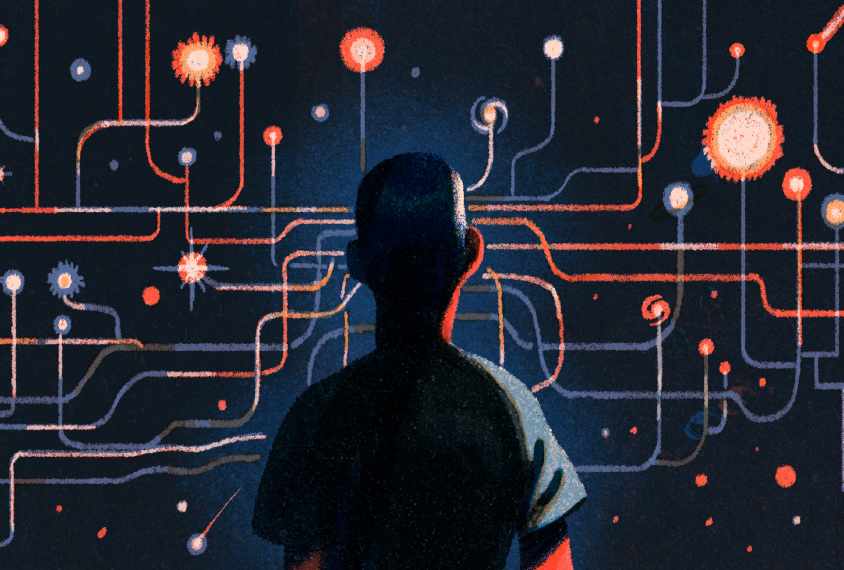
The benefits of special interests in autism
Researchers are studying how the intense passions of autistic people shape the brain, improve well-being and enhance learning.
Brain circuit makes social interactions rewarding, may be altered in autism
Blocking connections between the amygdala and hypothalamus prevents mice from finding social interactions as rewarding as they would otherwise.
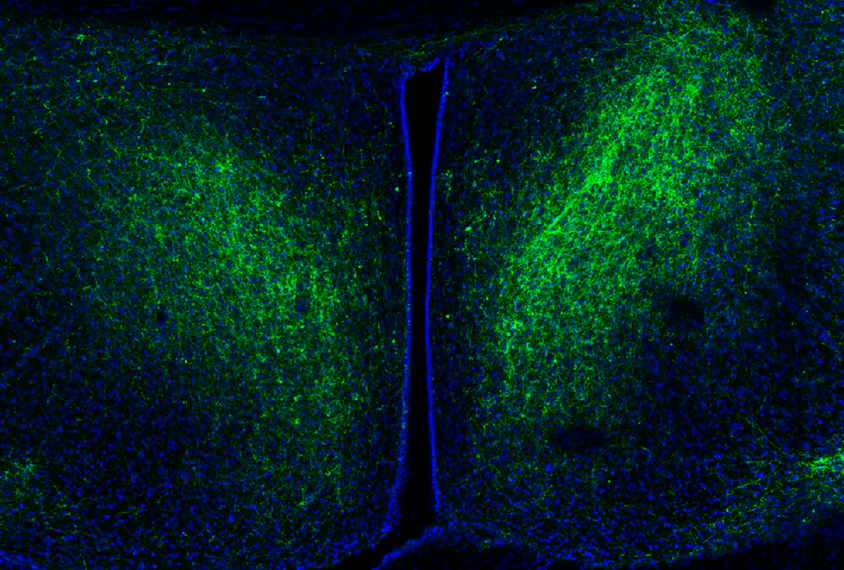
Brain circuit makes social interactions rewarding, may be altered in autism
Blocking connections between the amygdala and hypothalamus prevents mice from finding social interactions as rewarding as they would otherwise.
Dopamine neurons may dampen social behavior in mouse model of autism
Mice missing a copy of the autism-linked gene PTEN show a reduced preference for social interaction, possibly due to atypically large, overconnected dopamine neurons. Easing the overconnection may alleviate this trait.
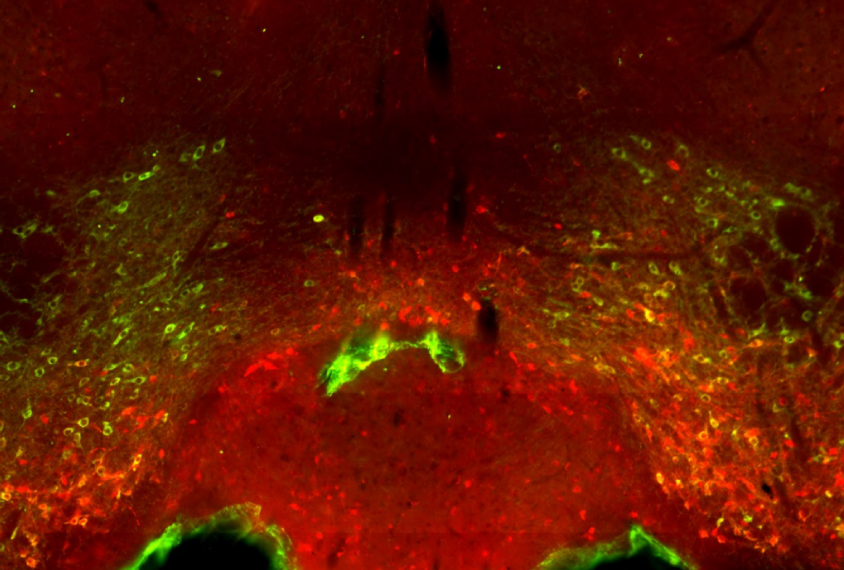
Dopamine neurons may dampen social behavior in mouse model of autism
Mice missing a copy of the autism-linked gene PTEN show a reduced preference for social interaction, possibly due to atypically large, overconnected dopamine neurons. Easing the overconnection may alleviate this trait.
Autism-linked gene exerts varied effects on oxytocin circuits in mice
Two types of neurons process social information, a new mouse study suggests, but only one is disrupted in mice missing the autism-linked gene FMR1.
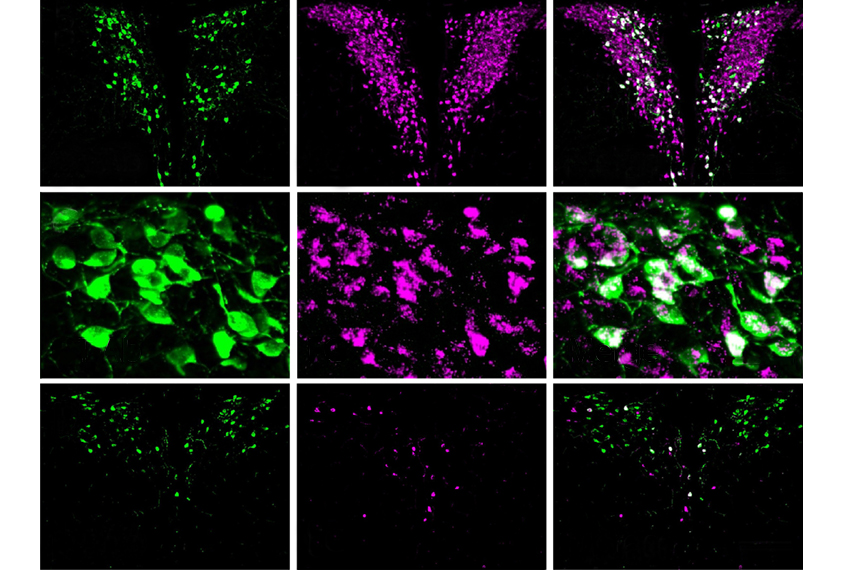
Autism-linked gene exerts varied effects on oxytocin circuits in mice
Two types of neurons process social information, a new mouse study suggests, but only one is disrupted in mice missing the autism-linked gene FMR1.
Social motivation predicts language skills in autistic children
The more children with autism tune in to and communicate with others as toddlers, the stronger their conversation skills are later in childhood.
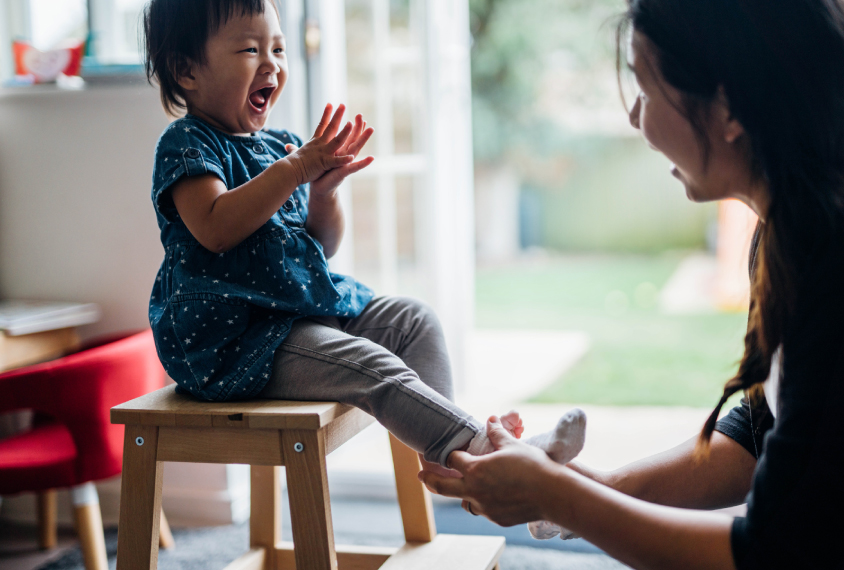
Social motivation predicts language skills in autistic children
The more children with autism tune in to and communicate with others as toddlers, the stronger their conversation skills are later in childhood.
Explore more from The Transmitter
Three ecological psychologists on the right and wrong ways to use the field’s principles in neuroscience
Matthieu de Wit, Luis H. Favela and Vicente Raja weigh in on the recent trend of neuroscientists importing concepts from ecological psychology, the study of how an organism’s interactions with its environment explain perception and action.
Three ecological psychologists on the right and wrong ways to use the field’s principles in neuroscience
Matthieu de Wit, Luis H. Favela and Vicente Raja weigh in on the recent trend of neuroscientists importing concepts from ecological psychology, the study of how an organism’s interactions with its environment explain perception and action.
Is there a neuroscientist in the House?
Sam Wang, a neuroscientist running for the U.S. House of Representatives, has been considering American democracy for decades.

Is there a neuroscientist in the House?
Sam Wang, a neuroscientist running for the U.S. House of Representatives, has been considering American democracy for decades.
Marcelle Lapicque: A forgotten pioneer in neuroscience
Lapicque was the first Black woman neuroscientist in Europe, new research suggests.
Marcelle Lapicque: A forgotten pioneer in neuroscience
Lapicque was the first Black woman neuroscientist in Europe, new research suggests.